The Social Network 2 is officially in the works, and here's what we know so far
Aaron Sorkin is all set to script the downfall of the once beloved social networking platform.

Long before Instagram became the 'it' social media app, there was Facebook—Mark Zuckerberg's most successful venture, one that defined our youth. The popular networking site had us in a chokehold, where every status update and photograph was a declaration of our existence, whether it was a college party or a chill session with the girls. How could we forget the iconic bunny pose (before Snapchat gave us its memeified, filtered version)?
And while we were busy curating our online personas, Hollywood was already scripting the drama behind the scenes. The Social Network, directed with David Fincher’s precision and penned with Aaron Sorkin’s mile-a-minute dialogue, delivered a film defined by tech noir, wired ambition, and loneliness typed in code. It opened with a breakup and ended with a billion-dollar company. And somewhere between depositions and betrayals, we got the unforgettable line: “You’re not an a**hole, Mark. You’re just trying so hard to be.”
The film made us question what success really looked like in the digital age—and what it cost. While the story revolved around the rise of Facebook, it also explored the minds behind it: young people stumbling through their twenties, still unsure of love, friendship, and who they were when the screen turned off.
Now, nearly a decade and a half later, The Social Network 2, by Sony Pictures, is officially on the horizon—not just as a follow-up, but a reckoning. While the first film captured the inception of the platform, this one is said to trace its fallout, from Facebook’s transformation into Meta to Zuckerberg’s attempt to rebrand the very company that helped define an era. But this isn’t the story of a plucky college dropout anymore. If Jesse Eisenberg returns—as rumours suggest—it’ll be to portray a man at the helm of a trillion-dollar empire, navigating accusations of data breaches, political manipulation, and the slow death of human connection.
Aaron Sorkin, who’s reportedly teaming up again with producer Scott Rudin, may focus less on invention this time and more on consequence—on the myth of the tech genius, and how it fades when the real-world damage comes into view. “Move fast and break things” once sounded rebellious; now it feels like a prophecy fulfilled—a platform so powerful it broke democracy, and maybe even broke us.
What to expect from the plot
The sequel is expected to dive into the messier side of Facebook’s legacy, starting with its controversial role in the 2016 US election. At the centre of it all is how the platform—now called Meta—was used to boost Trump’s data-driven campaign. With outrage and misinformation boosted by algorithms, the film is likely to explore a bigger, more urgent question: what happens when a social network quietly turns into a political tool?
Former insiders—now potential characters in the sequel—have since stepped forward to reveal that Facebook’s most addictive features weren’t accidents. The dopamine loops, the viral rage, the monetisation of attention—these weren’t flaws; they were intentional. The business model was no longer about connection, but control.
Additionally, the film will also highlight Zuckerberg’s dramatic pivot to the metaverse—a slick rebrand that came right after whistleblowers spoke out and public distrust hit an all-time high. To many, it felt more like an escape route rather than a bold leap into the future; a shiny distraction wrapped in virtual reality, designed to pull focus from the very real consequences of the empire he built.
A new(er) cast
Jesse Eisenberg is expected to reprise his role as Zuckerberg, possibly joined once again by Andrew Garfield’s Eduardo Saverin and others from the original cast. But new faces are likely, too—characters inspired by whistleblowers like Frances Haugen, campaign data scientists, Silicon Valley ethicists, and the very engineers who helped write the code that rewired how we live, vote, and think.
We were promised connection, but all we got was performance. And that’s the paradox this sequel might explore. The original tagline warned: “You don’t get to 500 million friends without making a few enemies.” But now, we’ve all lived it. We’ve become the product. Curated, commodified, and consumed.
Lead image: IMDb
Also read: The best shows and movies to obsess over this summer this June and July
Also read: Rainy day in? Press play on these feel-good, moody, and binge-worthy picks
more from Life

Sip, flirt, repeat: Inside New Delhi’s most discreetly delicious cocktail bar
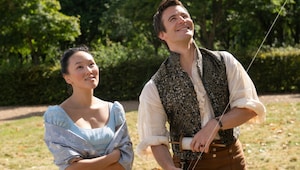
Is 'Bridgerton' season 4 saving its juiciest drama for Part 2?
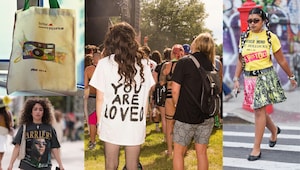
The rise of ‘I want it all’ culture and why Gen Z means it differently

NAAR and Quintonil: Bringing a taste of Mexico to the Himalayas

This Worli café is all about comfort, caffeine, and slow sips

Elie Saab brings couture-inspired luxury residences to India
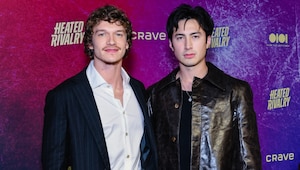
Not a drill: the plot of the third 'Game Changers' book about Ilya and Shane just dropped!
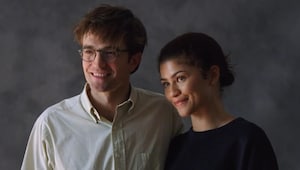
What we know about 'The Drama', the Zendaya–Robert Pattinson film that’s keeping its cards close
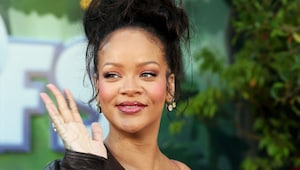
Sorry, not sorry—over-apologising is holding you back and here’s how to fix it
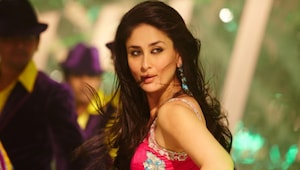
The 75 hotter fitness challenge proves you don’t need burnout to build better habits
